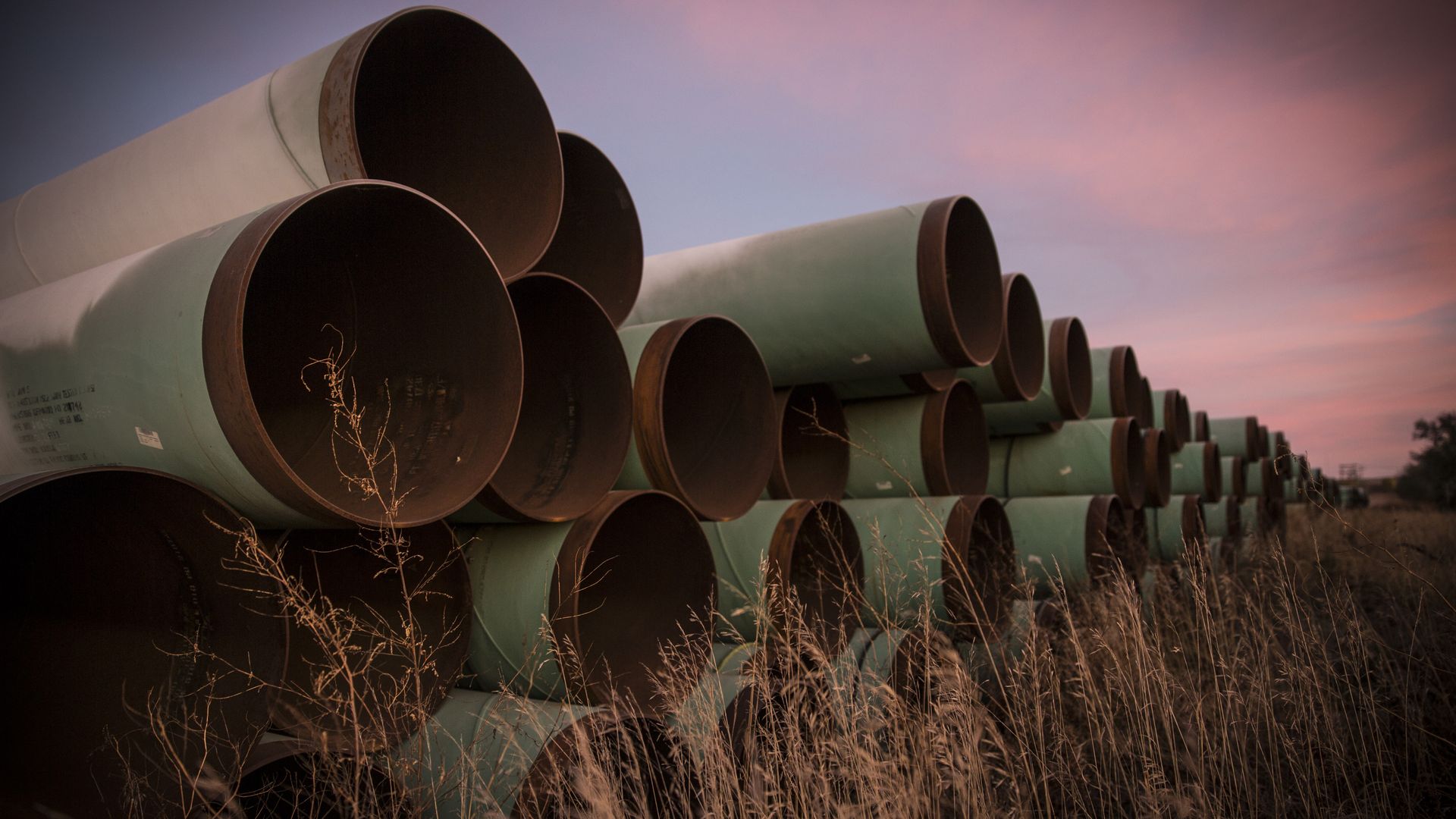Biden will issue executive order to rescind Keystone XL pipeline permit
Add Axios as your preferred source to
see more of our stories on Google.

Photo: Andrew Burton/Getty Images
President-elect Biden will issue an executive order on Wednesday to rescind permits for the controversial Keystone XL pipeline as one of his first acts on his first day in office.
Why it matters: The move is a major development in a longtime fight over a controversial pipeline that began under the Obama administration. It reverses some of President Trump's own first actions aimed at advancing the project upon taking office in 2017.
The big picture: The revocation of the permit is part of a broader executive order signed by Biden intended to take "critical first steps to address the climate crisis, create good union jobs, and advance environmental justice, while reversing the previous administration’s harmful policies," according to the administration.
Background: Opposition to the construction of Keystone XL, first proposed in 2008, had become a rallying cry for climate activists.
- The pipeline was originally expected to cost about $8 billion and would carry about 830,000 barrels a day of crude oil from Canada and through Nebraska, per The Washington Post.
- "A southern leg from Cushing, Okla., a major storage hub, to the Gulf Coast was approved in 2012 and constructed. Most of the northern leg has also been completed, with some of the most important gaps in Nebraska," the Post writes.
- Obama rejected the pipeline in 2015. "America is now a global leader when it comes to taking serious action to fight climate change, and frankly, approving this project would have undercut that leadership,” he said at the time.
Catch up fast:
- Lawsuits have slowed construction on the project throughout Trump's administration.
- Two Native American communities sued the government over the pipeline last year, charging the government did not consult with tribes on the pipeline's proposed path, which crosses tribal lands.
- Three Nebraska judges ruled in December that planners had "substantially and materially" changed the Keystone pipeline route since it was approved in 2017, and they may now need to apply for a new route certification, the Washington Post notes.
The other side: "The Government of Canada continues to support the Keystone XL project," Kirsten Hillman, Canada's ambassador to the U.S., told Politico Sunday.
Between the lines: The energy landscape has changed a lot since this project was first proposed in a way that makes it less relevant.
- The oil and gas industry, for example, is under financial and political pressure from low prices and a growing societal shift to cleaner sources.
- What's more, Canada's oil sands are often more expensive to produce than other types of oil, meaning its oil companies have been facing even more acute financial challenges.

